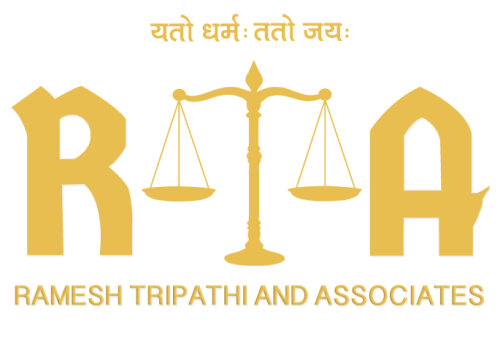Best Financial Services Regulation Lawyers in India
Share your needs with us, get contacted by law firms.
Free. Takes 2 min.
Or refine your search by selecting a city:
List of the best lawyers in India
About Financial Services Regulation Law in India
Financial Services Regulation in India is a comprehensive set of rules and guidelines designed to oversee and monitor the financial services sector. This regulation ensures the stability, transparency, and integrity of financial markets, safeguarding the interests of investors and consumers. The Reserve Bank of India (RBI), Securities and Exchange Board of India (SEBI), and the Insurance Regulatory and Development Authority of India (IRDAI) are the primary regulatory bodies governing the financial sector. These bodies formulate and implement policies aimed at promoting financial inclusion, controlling monetary policy, and protecting consumers through stringent compliance measures.
Why You May Need a Lawyer
Engaging a lawyer specializing in financial services regulation may be necessary in several situations. For instance, individuals or businesses may require legal assistance when launching a new financial product to ensure compliance with existing regulations. Financial institutions might seek legal help to navigate the complex landscape of banking, securities, and insurance laws. In addition, consumers experiencing disputes with financial institutions over loans, investments, or insurance claims often benefit from legal representation. A lawyer can provide guidance on regulatory compliance, help resolve disputes, and ensure that all financial dealings adhere to legal standards.
Local Laws Overview
Indian financial services regulation comprises various laws and regulatory frameworks, which include the Banking Regulation Act, 1949, the Securities Contracts (Regulation) Act, 1956, the Insurance Act, 1938, and the Payment and Settlement Systems Act, 2007. The RBI regulates banks and non-banking financial companies, ensuring their adherence to monetary policy. SEBI oversees the securities market to protect investor interests and promote fair trading. Meanwhile, IRDAI regulates the insurance sector, ensuring the appropriate conduct of business by insurance companies and addressing consumer grievances. Compliance with these laws is crucial for the legal and ethical operation of financial service entities.
Frequently Asked Questions
What is financial services regulation?
Financial services regulation refers to the legal framework governing the operations of financial institutions, ensuring transparency, fairness, and protection for consumers in the financial market.
Who are the main regulatory bodies for financial services in India?
The Reserve Bank of India (RBI), Securities and Exchange Board of India (SEBI), and Insurance Regulatory and Development Authority of India (IRDAI) are the primary regulatory bodies.
When might I need a financial services regulation lawyer?
Individuals or businesses may need a lawyer when launching financial products, facing disputes with financial institutions, or requiring guidance on compliance with local laws.
What are some key laws governing financial services in India?
Key laws include the Banking Regulation Act, the Securities Contracts (Regulation) Act, the Insurance Act, and the Payment and Settlement Systems Act.
How do regulations protect consumers?
Regulations protect consumers by licensing financial entities, setting ethical standards, ensuring product transparency, and addressing grievances effectively.
How do these laws impact businesses?
Businesses must comply with financial regulations to operate legally, maintain market integrity, and protect their clients, which also impacts their operational procedures and compliance costs.
What actions can be taken for non-compliance with financial regulations?
Non-compliance can lead to legal penalties, fines, or even revocation of licenses, thus compromising the business’s credibility and operational capacity.
What consumer rights are ensured by these regulations?
Consumers are protected against fraudulent practices, given access to financial services, allowed to resolve disputes efficiently, and ensured of fair treatment by financial institutions.
Are there provisions for grievance redressal?
Yes, regulatory bodies like SEBI and IRDAI have established mechanisms for consumers to lodge complaints and seek redressal for grievances.
How do financial regulations contribute to economic stability?
By promoting transparency and accountability, maintaining market integrity, ensuring fair practices, and safeguarding consumer interests, financial regulations contribute to the overall economic stability of the country.
Additional Resources
To further assist individuals seeking legal advice in financial services regulation, consider exploring the websites or publications from primary regulatory bodies such as the Reserve Bank of India (RBI), Securities and Exchange Board of India (SEBI), and Insurance Regulatory and Development Authority of India (IRDAI). Accessing legislative documentation like the Banking Regulation Act, Securities Contracts (Regulation) Act, and Insurance Act can also provide insights into the framework governing financial services.
Next Steps
For individuals seeking legal assistance in financial services regulation, it is advisable to consult a lawyer specializing in this domain. You can begin by researching legal firms with expertise in financial regulation and scheduling consultations to discuss your specific needs. Preparing a comprehensive summary of your issue or query and relevant documents will facilitate better advice and representation. Additionally, if dealing with a dispute, ensure you have documented correspondences and agreements as evidence to present your case effectively.
Lawzana helps you find the best lawyers and law firms in India through a curated and pre-screened list of qualified legal professionals. Our platform offers rankings and detailed profiles of attorneys and law firms, allowing you to compare based on practice areas, including Financial Services Regulation, experience, and client feedback.
Each profile includes a description of the firm's areas of practice, client reviews, team members and partners, year of establishment, spoken languages, office locations, contact information, social media presence, and any published articles or resources. Most firms on our platform speak English and are experienced in both local and international legal matters.
Get a quote from top-rated law firms in India — quickly, securely, and without unnecessary hassle.
Disclaimer:
The information provided on this page is for general informational purposes only and does not constitute legal advice. While we strive to ensure the accuracy and relevance of the content, legal information may change over time, and interpretations of the law can vary. You should always consult with a qualified legal professional for advice specific to your situation.
We disclaim all liability for actions taken or not taken based on the content of this page. If you believe any information is incorrect or outdated, please contact us, and we will review and update it where appropriate.
Browse financial services regulation law firms by city in India
Refine your search by selecting a city.















